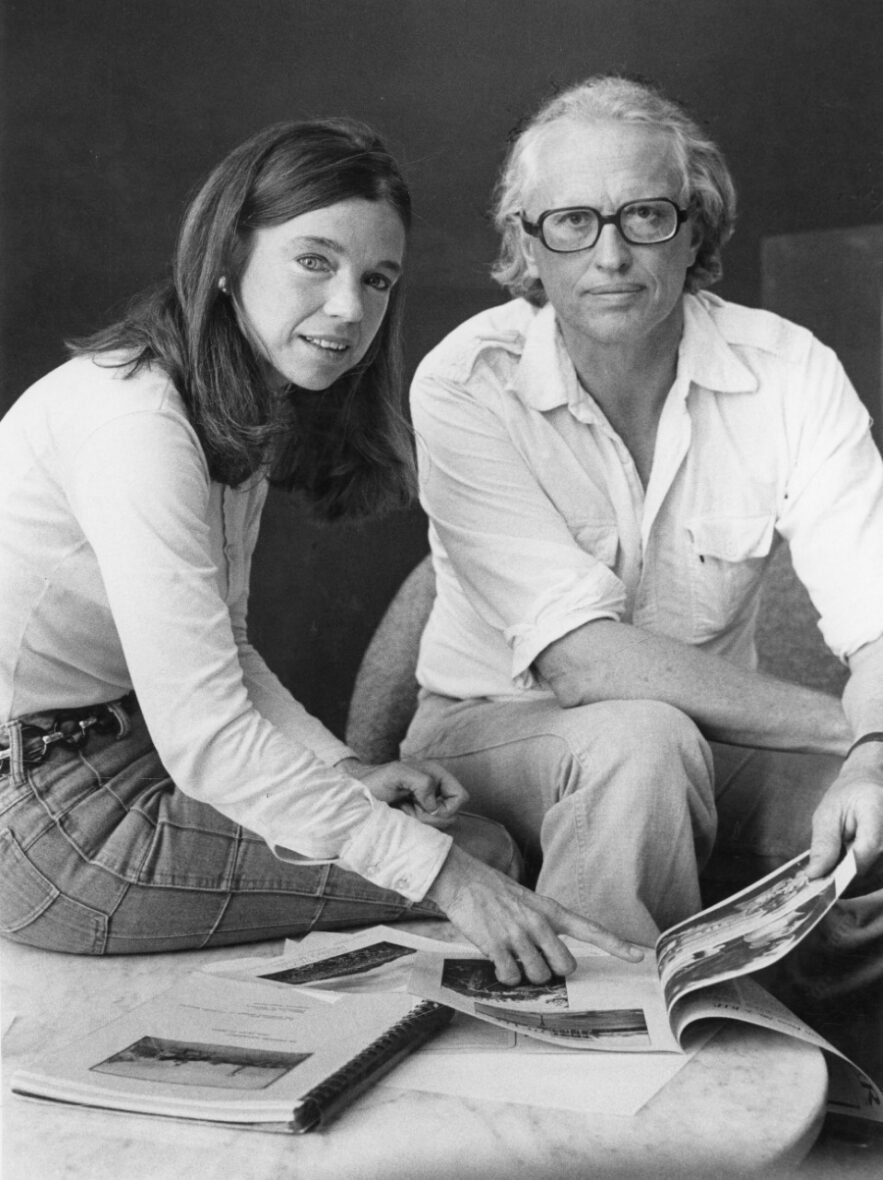Dec. 20, 2021

The Briscoe Center mourns the loss of Fred Baldwin, photographer and co-founder of FotoFest International. Baldwin died on Dec. 17, 2021. The center is home to the archives of Baldwin and his partner Wendy Watriss.
“Fred was an extraordinary photographer, and the extensive archive of his life’s work is an invaluable part of the center’s photography collections,” said Don Carleton, executive director of the Briscoe Center. “His legacy extends beyond his body of work, and he and Wendy will be remembered as the creative force behind FotoFest, which became an important incubator for photographic talent. Fred was a good friend of mine for more than forty years, going back to my time as director of the Houston Metropolitan Research Center. He will be sorely missed.”
Baldwin was born in Switzerland in 1929. His father, an American diplomat, died when he was five years old. He joined the Marines in 1950 and was dispatched to the war in North Korea, where he was wounded and decorated. It was in Korea that Baldwin first began capturing his experiences through photography. After the war, he moved between France and the United States. While still a student at Columbia College, he charmed his way into Pablo Picasso’s residence in Cannes on the French Riviera, taking pictures that would launch him and his Leica around the world on documentary assignments—from arctic Norway to Borneo, India and Afghanistan. Early in his career, Baldwin photographed the Ku Klux Klan in Reidsville, Georgia, and in 1963 he began to document the civil rights movement, volunteering for Martin Luther King Jr.’s Southern Christian Leadership Conference. His images would form the basis of the book Freedom’s March: Photographs of the Civil Rights Movement in Savannah (2008).
“What was magical for me was that a little tiny camera could serve as a passport to the world, as a key to opening every lock and every cupboard of investigation and curiosity,” Baldwin later said. “It was also a way of taking me to places and situations that would provide me good stories to tell.”
In 1970 Baldwin met Wendy Watriss, a freelance photographer and stringer for Newsweek and the New York Times.
They forged a personal and professional partnership that continued until his death. In 1972 they started a project: “to rediscover our own country, places and people off the main roads.” They started their journey in the southern U.S., across Alabama, Mississippi, and the Arkansas Delta into Texas in a camper being towed by a 1957 220S Mercedes Cabriolet. They spent the next 15 years in Texas, capturing local life in compelling detail. They documented four distinct cultural frontiers in Texas, producing books and projects about each—black and white life in Grimes County; descendants of German settlers in Gillespie County; and Spanish-Mexican working families and ranchers in the Rio Grande Valley and Big Bend regions.
During the 1980s and 90s, they also pursued individual projects, including Watriss’s coverage of the effects of the herbicide Agent Orange on U.S. Vietnam veterans. Collectively and individually, Baldwin and Watriss worked as freelance photographers in Cuba, Nicaragua, El Salvador, West Africa, and the southern-southwestern United States.
In 1983 Baldwin and Watriss founded the Houston-based FotoFest International to create a new non-profit U.S. platform for photography to give visibility to conceptual and documentary photography from across the world and provide international opportunities for photographers beyond established museums and commercial galleries. The first Biennial, held in 1986, is now a world-renowned photography event. In 1990, FotoFest inaugurated its year-round education program, “Literacy Through Photography,” in collaboration with Wendy Ewald. In 1994, a program of traveling shows, exchange programs, and book publications was established for the Biennials and FotoFest’s new public art programming between biennial events.


